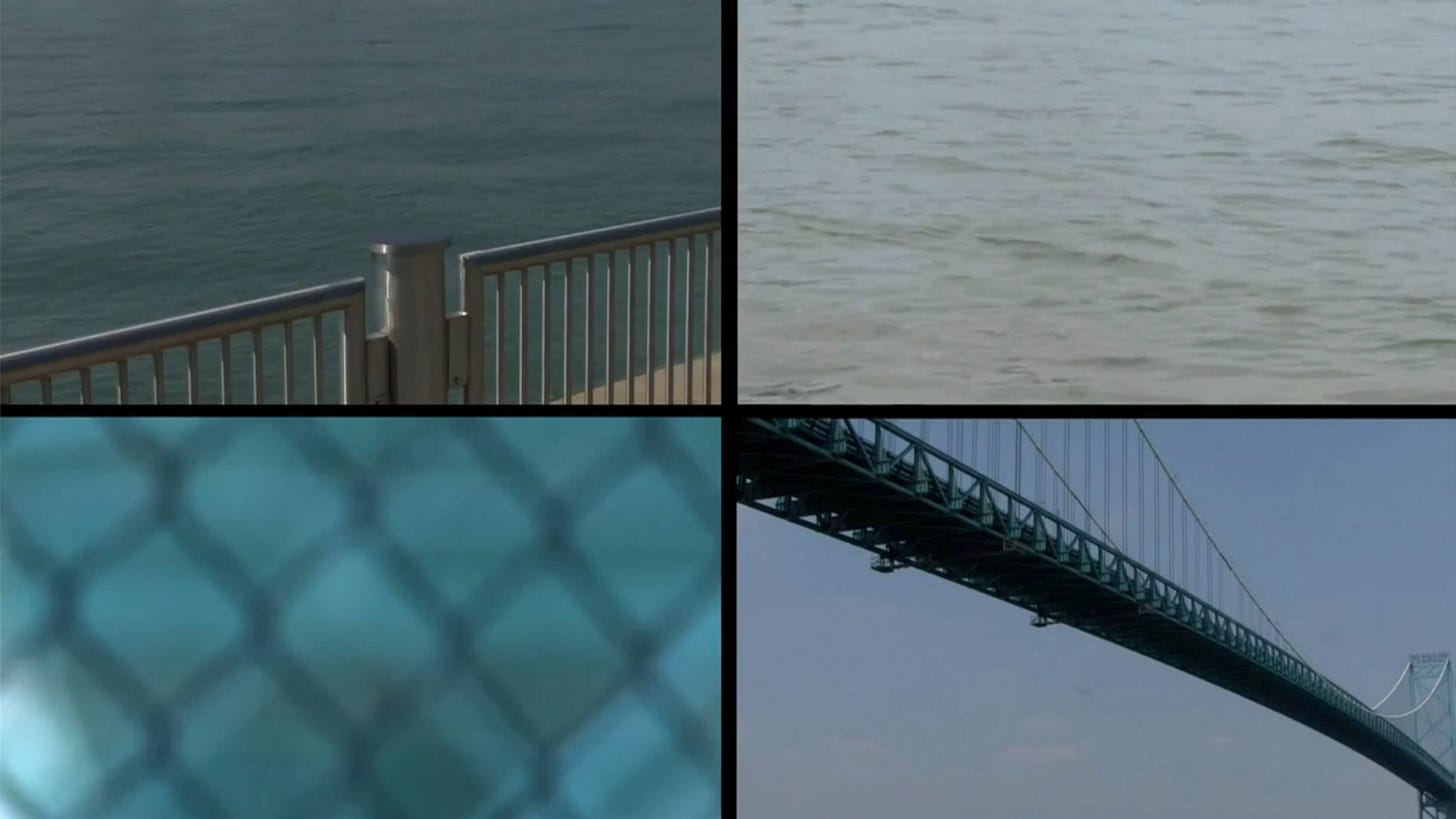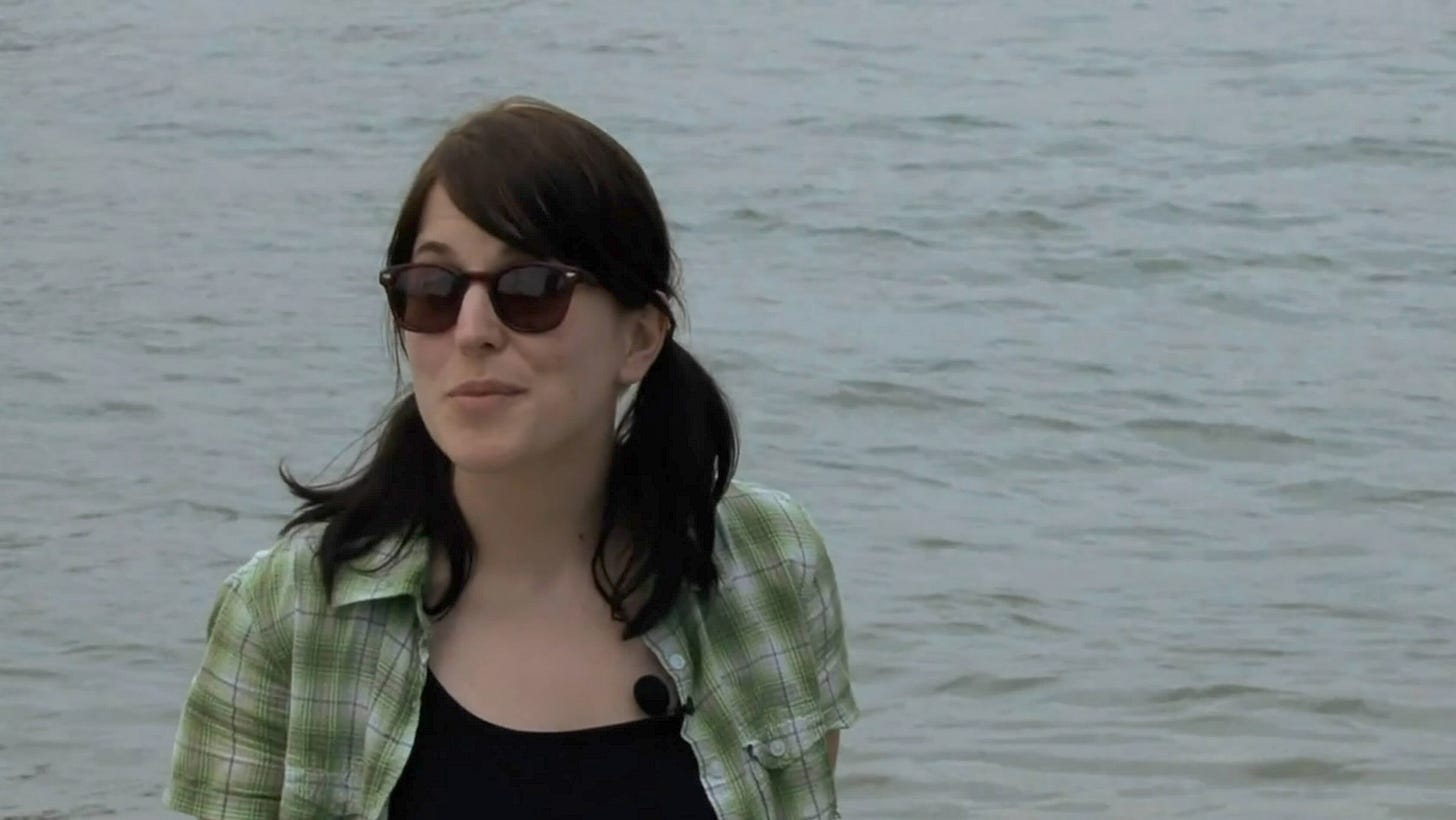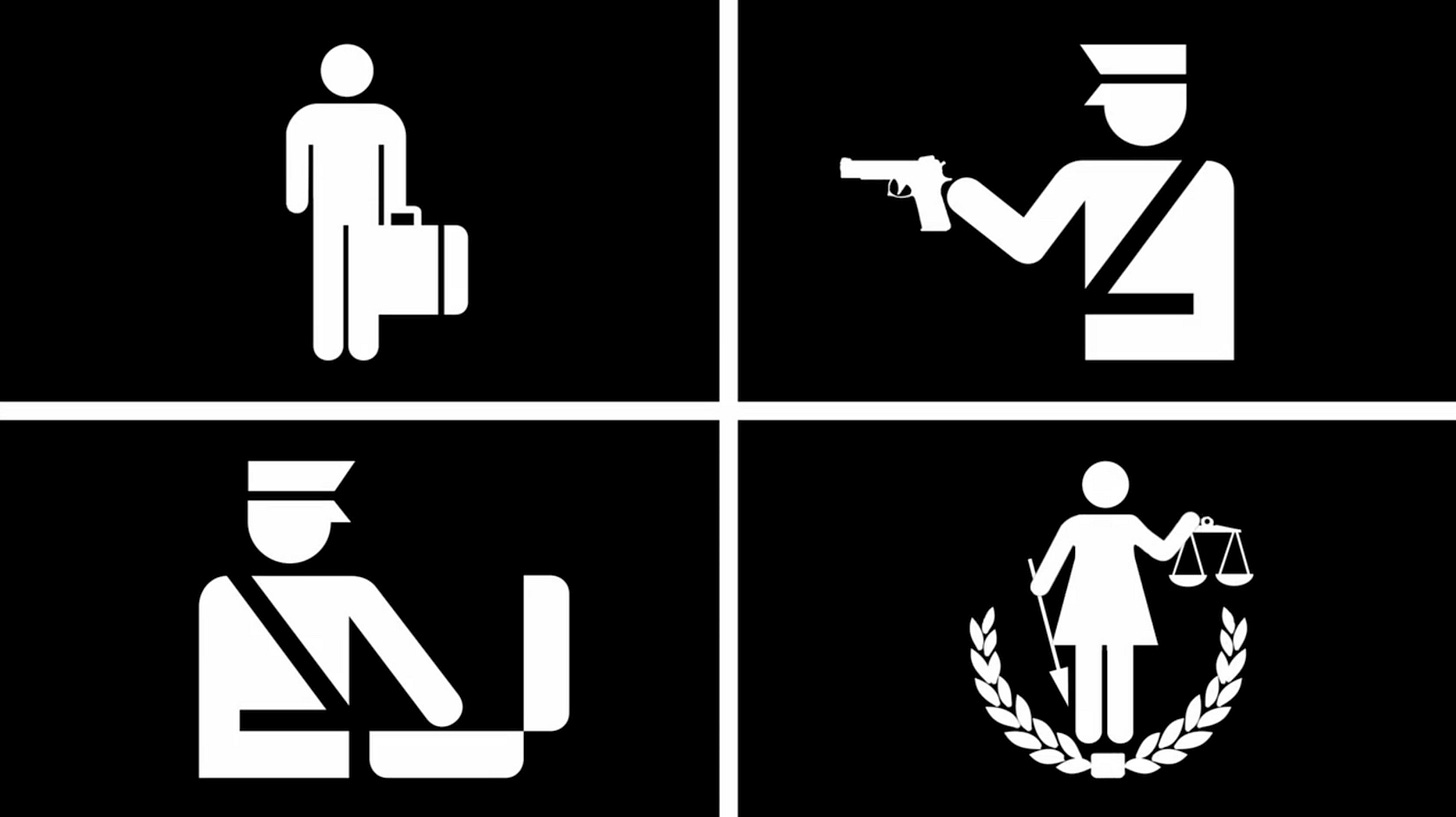Conceptual Variety Show: The Mirrored Curtain: Take Me There
(2011)
(This article previously appeared in FilmThreat.)
Like many experimental films, Lori Felker’s short The Mirrored Curtain: Take Me There uses abstract and metaphorical images to explore the poetic and philosophical aspects of a concept, in this case, the concept of a border. But Felker has chosen to embed this philosophical and poetic work within an extremely witty and well done satire of an ordinary idiotic broadcast TV show, complete with a cheerful hostess, upbeat music, and cheesy video wipes. The result is a very funny kind of a hybrid, funny both in the sense of amusing and fun to watch and also in the sense of peculiar.
The Mirrored Curtain veers back and forth from the contemplative, sparse rhythms you might expect in a James Benning film to the snappy pace of Entertainment PM. Felker uses footage in and around a river and a bridge as her central metaphor. A longish shot of a dead fly in a torn spider’s web, suspended over the water, is followed by a shot of the hostess flashing her passport in front of the bridge, and enthusing that she is “ready to cross over.”
Felker uses “international symbols,” such as those diagrams which identify bathrooms and basic services in airports, to riff on the idea of abstraction. She invents her own symbols and diagrams for the concepts of territory, border, and difference. She takes richly colored footage of water and rocks, and reduces them to black and white compositions, denoting the bare idea of “inside” and “outside.” In so doing, she points out the dual edged tool of abstraction: it can be used to create a poetic intensity and ambiguity, but it can also be used to flatten experience and reduce the flowing, ineffable subtlety of experience into salable commodities.
By incorporating tropes from broadcast television into an art film, Felker explores the seemingly uncrossable border between high art and popular culture. She brings a much needed lightness of tone and the casual, relaxed feeling of TV into the sometimes stuffy and pretentious genre of the abstract essay film. At the same time, she humorously reminds us exactly why it is that artists ordinarily never choose the breezy, fatuous style of commercial TV to present abstract, nuanced, or poetic subjects: the style of broadcast TV reduces absolutely everything in its path to the most superficial, reductive, and ultimately meaningless terms possible. This serves as a stark reminder of why mass media, as realized in a consumerist society, has such a devastating effect on culture: it reduces the perceptual window through which we view the nuanced complexities of every issue to the point where we routinely substitute short-hand buzz concepts for all of reality, rendering us incapable of meaningful change, or even of comprehending our own situation.
In The Mirrored Curtain, Lori Felker has found an original and witty strategy to extend her exploration of the concept of borders to include the style and world-view of media itself.
My articles on experimental film are freely available to all, but are supported by monthly and annual donations from readers. Please consider becoming a paid subscriber to support my work. Thank you.




